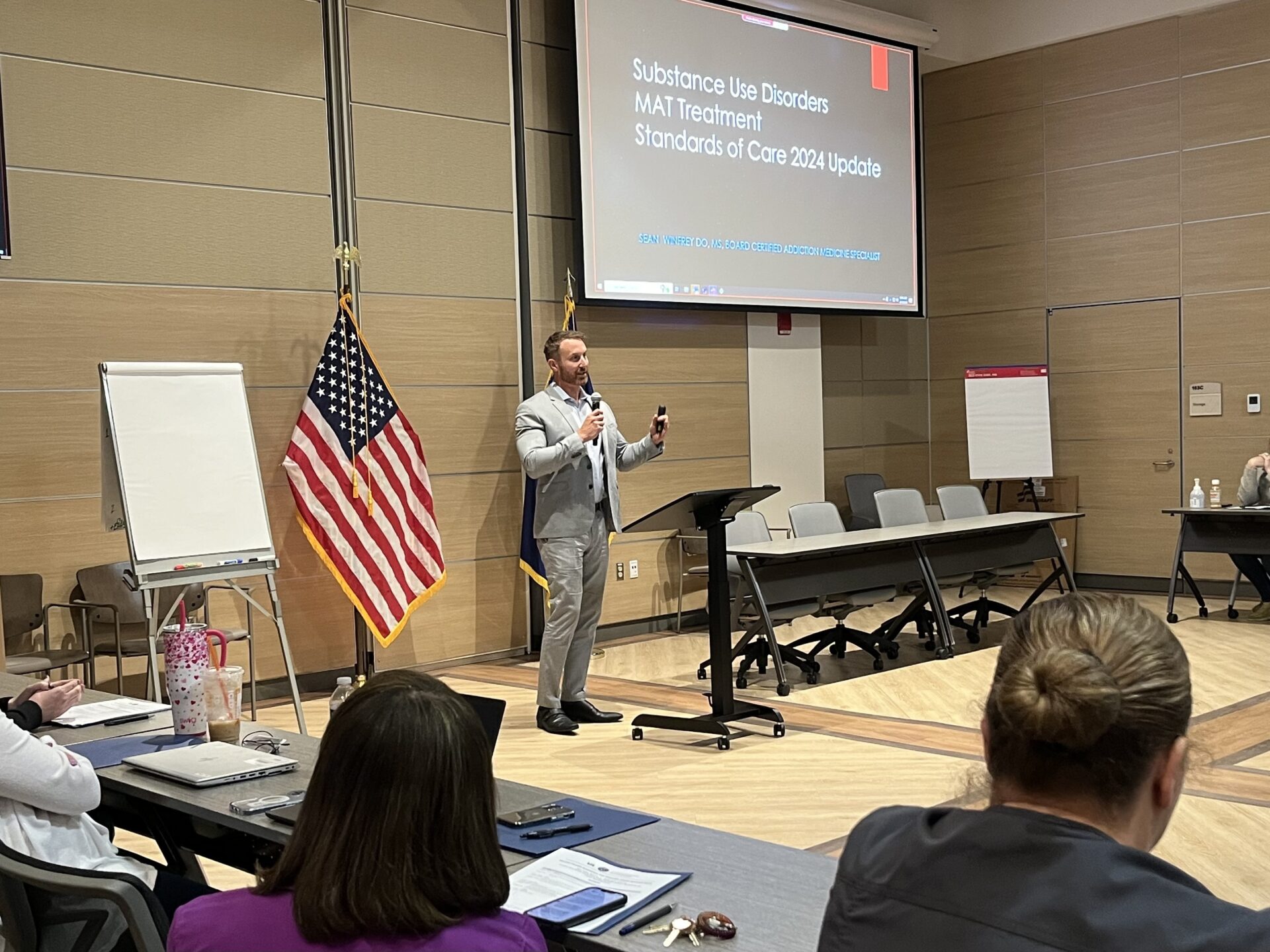As fentanyl overdose deaths rise nationally, veterans face new challenges overcoming historic barriers to health care.
Mark Mann, chief of staff for mental health services at the Martinsburg VA Medical Center (VAMC), said that West Virginia’s veteran community has been no exception to this struggle.
“The VA is doing a good job of curbing that, but we still are losing veterans every year to poisoning from fentanyl and other things that are mixed into the drugs,” he said.
Veterans have long faced bureaucratic difficulties and stigma when seeking support for substance use disorder. But the rising prevalence of fentanyl has also tested current mental health resources for veterans, requiring new strategies.
In response, health care providers at the VAMC are working to expand current resources to better serve veterans struggling with substance use disorder and other forms of mental illness.
On Friday, medical professionals and members of the local community gathered at the facility for a summit on substance use disorder among veterans.
The event featured discussions from both national and local medical professionals, who discussed substance use disorder among veterans at large and specific services at the VAMC supporting veterans’ mental health needs.
Those resources include traditional medical resources, like residential inpatient services, intensive outpatient programs and medication-assisted therapies, Mann said.
But it also includes providing a full “continuum of care,” supplementing medical services with social interventions and support.
In 2022, Mann said staff members at the VAMC helped advocate for the creation of a three-digit hotline number for suicide and mental health crisis intervention, 988.
Photo Credit: Jack Walker/West Virginia Public Broadcasting
Some veterans who contact the hotline are put in touch with the VAMC, who can then provide follow-up services and ensure they are safe.
Mann said providing a simple and remote resource like this has helped the VAMC provide more immediate support to veterans in need, and keep lines of communication open once patients step off the facility’s Martinsburg campus.
The VAMC has also created on-campus resources that provide counseling, like a chaplain assigned specifically to support veterans with difficulties surrounding mental health or substance use.
Roosevelt Brown, chief chaplain at the VAMC, said that the creation of this position allowed the VAMC to directly help local veterans, and point them to resources specific to their mental health needs.
“Part of what we’re doing now is trying to say, ‘Hey, how can we make sure we open the door and let them know that we have services available for them?’” he said.
As chaplains, Brown said that he and his colleagues offer spiritual or emotional guidance to patients at the VAMC, and also encourage them to access specific resources that could support them through periods of difficulty.
Brown said that fewer people used the VAMC’s chaplain services during the COVID-19 pandemic, but that turnout has returned to pre-pandemic levels with the creation of these new resources.
He added that he hopes this trend will continue, and that the VAMC will be able to further support veterans struggling with substance use disorder.
“We’re motivated to do something about those who need help,” he said. “My hope is that what we can do is [bring] a better quality of life [to] veterans.”
